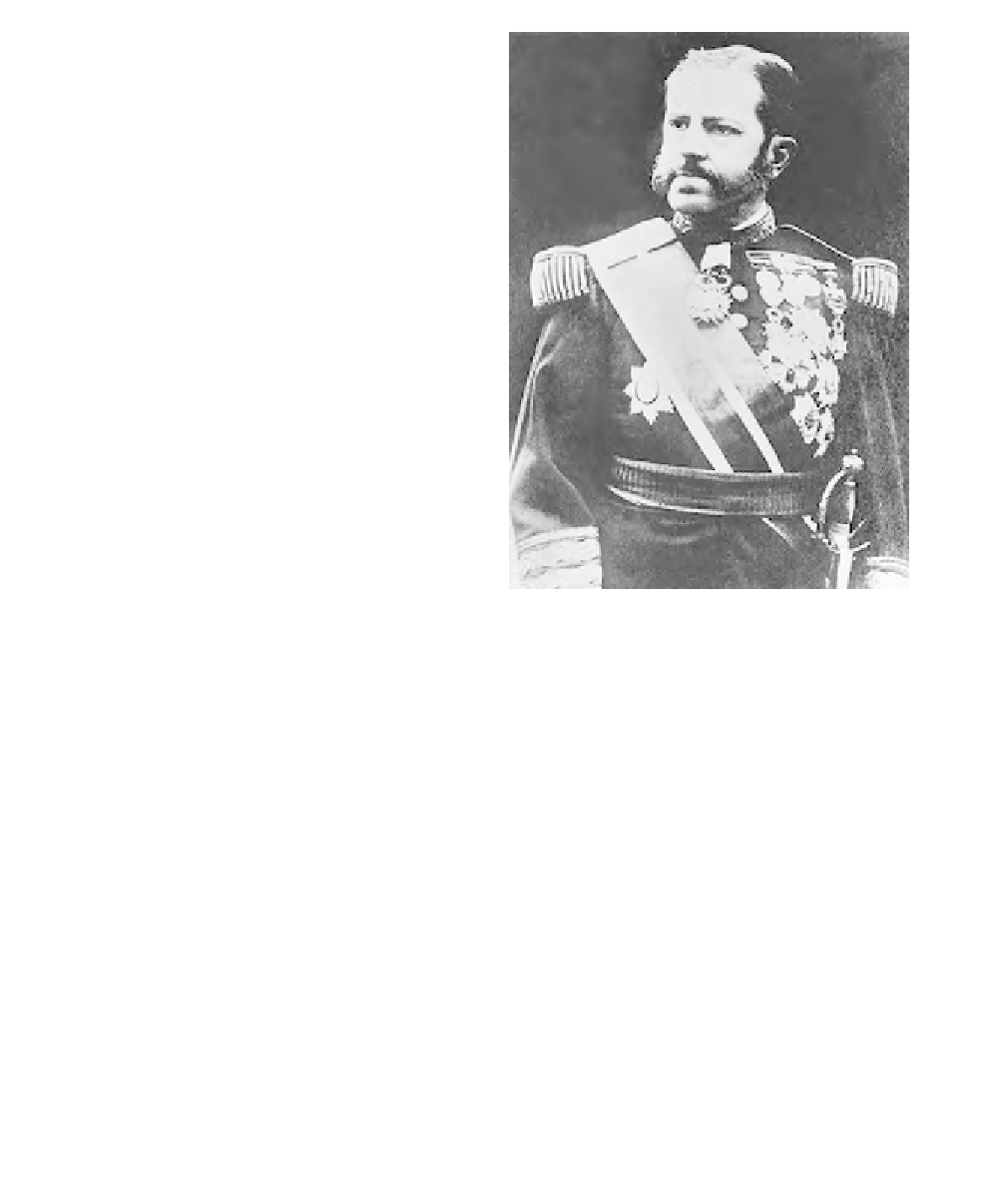Travel Reference
In-Depth Information
lem, and reckless political opportunism in
the Anual investigation. The prime minister
could raise virtually no support against the
incipient coup d'état (although most of the
senior generals remained uncommitted to
Primo de Rivera), and Alfonso XIII made it
clear that he would not lift a finger to sup-
port his ministers. Following their inevita-
ble resignation, Alfonso welcomed the
captain general to M
ADRID
and appointed
him to head a military directorate with vir-
tually unlimited authority. Primo de Rivera
issued a public statement declaring that he
was not a dictator and that no one could
rightfully call him that. He was simply a
man whose comrades had honored him by
entrusting him with the mission of saving
the fatherland. When a journalist asked
him if he was imitating the recent fascist
seizure of power in Italy, he responded that
there was no need to copy the “great Mus-
solini.” He pointed out that there were
splendid precedents in Spanish history for
military men intervening to end corrup-
tion and mismanagement by politicians.
He spoke of nine men who would accom-
plish as much as possible in 90 days, a
seeming promise of limited disruption of
constitutional norms that did much to
reassure the public.
The regime of Primo de Rivera did in fact
turn out to be a dictatorship, and it lasted
for years rather than months. Although the
military directorate was broadened to
include civilian members in 1925, the con-
stitution of 1876 was essentially discarded,
solved. Under the royal mandate Primo de
Rivera ruled by decree, just as despotically
as any contemporary dictator. Yet by com-
parison with most of them he was moder-
ate in his tactics. There was little of the
General Miguel Primo de Rivera
(Library of Congress)
brutality and persecution of dissidents that
characterized, for instance, the Franco tyr-
anny in later decades, to say nothing of
those in Russia and Germany. Moreover
many of his early programs were construc-
tive. His termination of the war in M
OROCCO
in 1926 was praised by some as a sensible
compromise between imperialism and
abandonment, even though it disappointed
some of his hard-line military colleagues.
True to his oft-repeated pledge, he attacked
bureaucratic waste and corruption while
seeking to root out the traditional power of
the caciques (local political bosses linked to
the major parties). He pursued a course of
modernization aimed at rendering the

Search WWH ::

Custom Search